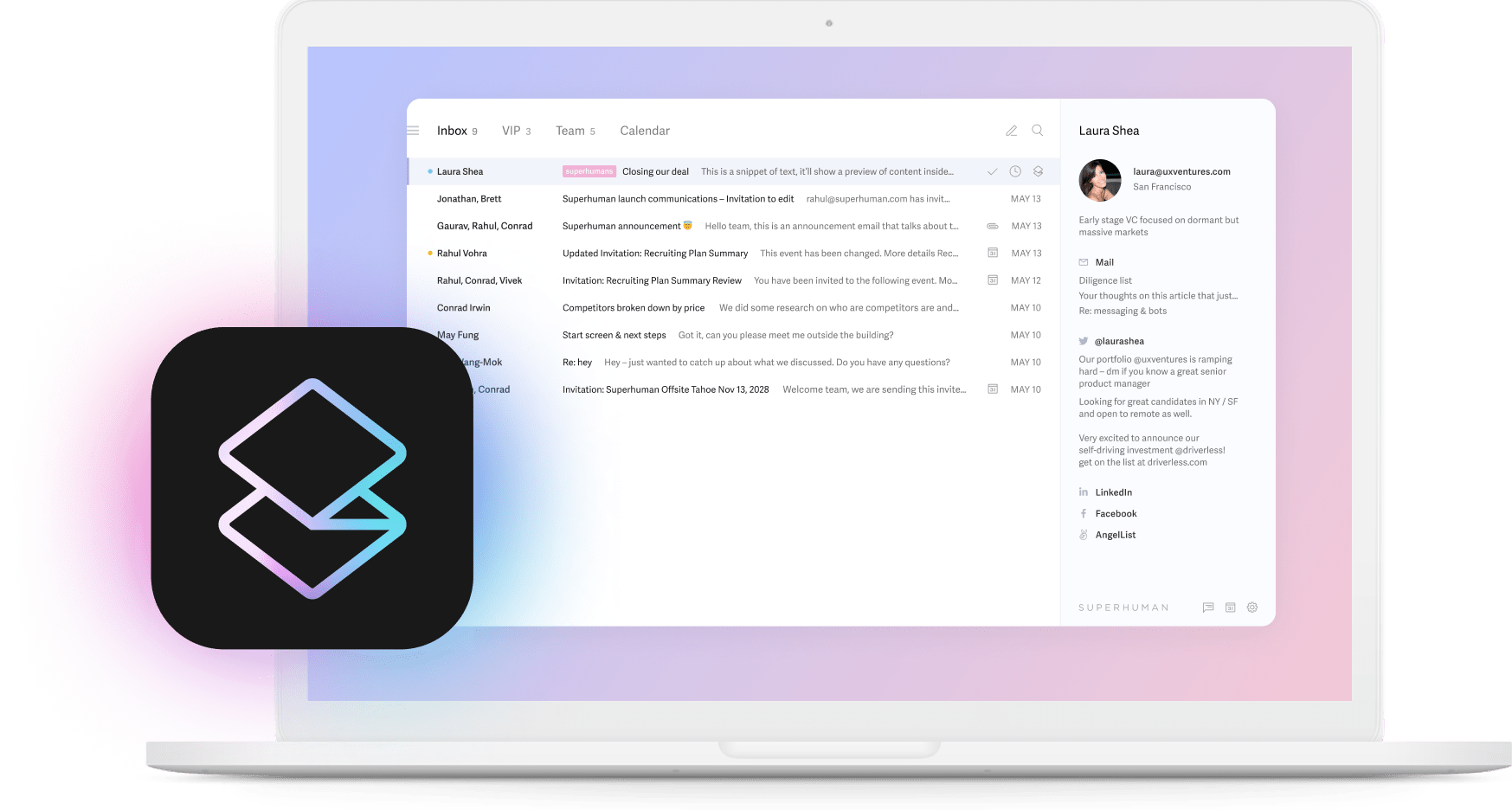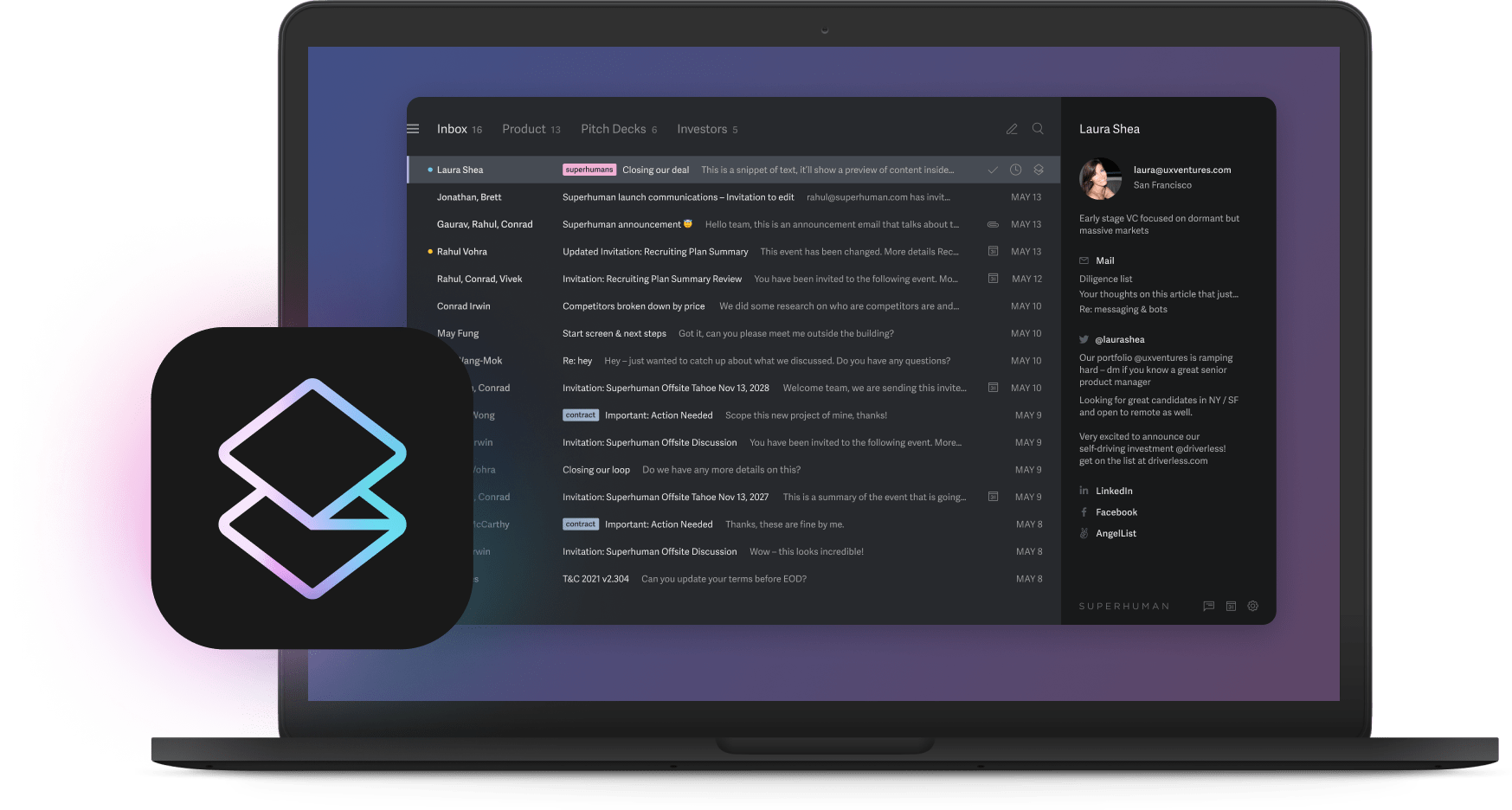
In the digital age, distractions are completely unavoidable. Trying to work on the same screens you can use to play games, surf the web, and chat with your friends and family is already a challenge. Add in all the tools we now use for work — and the seemingly constant barrage of noise and notifications they can create.
If you're wondering how to improve concentration when everything around us is constantly demanding our attention, you're far from alone. From understanding concentration to learning the strategies you can start using to improve yours, this article has all the guidance you need.
What is concentration?
Concentration, in its simplest terms, means being able to control your own attention.
As Remez Sasson wrote in Will Power & Self Discipline, it's "the ability to direct one's attention to following one's will". Concentration is the ability to focus your mind on one subject, object, thought, or task, and ignore all others that aren't related to it.
That last part is what can be difficult for many people. It can be extremely difficult to ignore things outside of what we're concentrating on. But concentration skills are like any other skill — they take practice.
According to the 2015 Microsoft Attention Spans report, there are three types of concentration: sustained, selective, and alternating. It's necessary to understand and practice all three to improve your overall concentration.
- Sustained concentration means being able to maintain your focus over time, even while doing repetitive activity.
- Selective concentration means being able to focus your attention on one thing while ignoring external stimuli.
- Alternating concentration means being able to shift your focus from one task to another, sometimes back and forth and sometimes using different cognitive skills for each.
In today's workplace — and especially for knowledge workers — we need to use all three types of concentration throughout the workday. Sometimes a task or project even requires multiple types of concentration at the same time.
What factors affect your concentration?
Concentration can be affected by many different factors, both internal and external. Here are some of the most common ones to look out for.
Distractions
Distractions are all around us. It doesn't make concentration any easier that the same devices we use to do work are also the gateway to an infinite number of potential distractions: email(!), social media, text messages, phone calls, video games, and more. Researchers have even found that in the digital age, our brains are so primed for distraction by the constant stream of information all around us that even just seeing your smartphone can distract you from a task.
Sleep
Sleep is an important part of well-being, and also has a huge effect on our ability to concentrate. Multiple scientific studies have found that lack of sleep makes it harder to focus and concentrate, and makes us less alert and more easily confused and distracted.
Physical activity
Not only is regular exercise an important part of maintaining your overall wellness — studies have shown it can have a huge impact on concentration, too. Physical activity provides an immediate boost to your brain's dopamine, norepinephrine, and serotonin levels, all of which help with focus and attention.
Eating habits
While your brain comprises only around 2% of your body weight, it uses up to 20% of the total energy produced in your body each day. If you don't fuel your body with nutritious foods, you might not be meeting your brain's energy needs, and it can affect your ability to concentrate.
Environment
Our environment can have an outsized impact on our concentration, for a number of different reasons. We need to feel safe and comfortable in order to concentrate, so an environment that doesn't feel secure, is the wrong temperature, or doesn't have the right furniture or devices can make it impossible to focus on a task.
Physical factors
And finally, concentration can be affected by physical factors, some of which are completely outside of our control. This can include disabilities, psychological issues, or medical issues — all of which can affect your cognitive function. Psychological conditions like ADHD or depression quickly come to mind when thinking about medical issues that can affect concentration, but any physical factor might result in symptoms that disrupt your focus: diabetes, high or low blood pressure, anemia, and hormone imbalances are all examples of physical conditions that can cause cognitive symptoms.
How to improve concentration
Looking to boost concentration by improving your skills? The tips below can help you by training your brain, removing distractions, improving your well-being, and more — and they're all proven to positively impact concentration.
Train your brain
Brain training has been the focus of scientific studies for decades, and many of those studies show that brain training exercises can improve cognitive abilities and brain function, leading to improved focus, concentration, and problem-solving skills.
Harvard neuropsychologist Kim Willment suggests brain training games, like crossword puzzles, sudoku, logic puzzles, or computer-based games designed for cognitive training.
"The goal of playing these games is not to get better at them, but to get better in the cognitive activities of everyday life," Willment said. "But there is evidence that a person's ability to pay attention can be improved by progressively pushing the person to higher levels of performance. So if you reach a certain level of sustained attention, pushing it to the next level can help improve it, and this may translate to everyday life".
Some researchers also recommend "concentration workouts", which involve choosing a single task, and then trying to focus only on that task for a set amount of time. Some ideas include drawing or doodling, tossing a ball or small object into the air and catching it, or observing the area around you and writing down things you see and hear. Aim for three to five minutes at first, and increase the time as you do more concentration workouts and improve your skills.
Eliminate distractions
Eliminating distractions entirely can be extremely difficult, if not impossible. But there are strategies you can use to help mitigate distractions while you work — especially the digital ones that are becoming louder and harder to ignore. Some ideas include:
- Managing your notifications so you aren't constantly bombarded by them.
- Removing unnecessary devices from your workspace.
- Unplugging from devices to do deep work when you can.
See more: How to conquer digital distractions
Reduce multitasking
Multitasking can be divisive. While there's plenty of research that shows multitasking can have a disastrous effect on productivity, the 2015 Microsoft Attention Span report showed that two-thirds of people believe multitasking is the only way they can get anything done. In today's work landscape, which often requires switching between tasks, tools, and devices nearly constantly, it's easy to see how multitasking can feel like a necessary evil.
You may not be able to stop multitasking altogether, but you can do things to reduce the time you spend context switching so you can maintain focus while you work. One way to do that is to use the right tools — like Superhuman.
Not only is Superhuman the fastest email experience on earth, but its UI is designed to help you focus on one thing at a time: getting through your inbox faster so you can get back to more important tasks. If you want to save up to three hours per week on email, you need Superhuman.


Check your sleep hygiene
Getting enough sleep is vital to having high enough energy levels to sustain your focus and concentration — and so is getting good quality sleep.
It's recommended that adults get no fewer than seven hours of sleep per night, though experts say that eight to ten hours is even better. But the amount of sleep is just one part of the equation — if you have trouble staying asleep, or if you sleep rhythm is disrupted during the night, the quality of your sleep may become poor enough to impact your ability to concentrate.
Good sleep hygiene means giving yourself enough time each night to get the rest you need. Some other steps you can take to ensure better quality sleep are:
- Limiting screen time in the one to three hours before you go to bed.
- Maintaining a consistent, cool temperature in your bedroom.
- Using blackout curtains or a sleep mask to block light that may wake you up.
- Using earplugs or a white noise machine to drown out noise that might disrupt your sleep.
Exercise
We already talked about how exercise increases brain chemicals like serotonin and dopamine, which help promote concentration in the short term. But exercise has long-term benefits to focus and attention as well — it's an important part of maintaining your overall physical health, which contributes to your ability to concentrate.
Eat a healthy meal
Giving your body the right fuel is a crucial part of improving concentration. A balanced diet helps ensure you aren't distracted by hunger, and that your body is producing enough energy to give your brain all the power it needs. Foods that are especially important for brain health are proteins and healthy fats, like those found in olive oil, avocados, nuts, and seeds.
Practice mindfulness
In 2011, researchers reviewed 23 studies to compile evidence that practicing mindfulness can help increase attention and focus and improve memory and other cognitive abilities.
Mindfulness doesn't have to just be quiet meditation — though that's a great start. Any activity that helps you focus on the present moment can help you reap the benefits of practicing mindfulness: deep breathing, journaling, and even some types of exercise, like yoga.
See more: Can transcendental meditation unlock your creativity?
Spend time in nature
There's quite a bit of evidence suggesting that spending time in nature every day (even if it's just a quick walk through a park, or around your block) can pay off in terms of focus and productivity. The American Psychological Association says that spending time in nature is beneficial for both physical and mental health, and a 2014 study showed that adding greenery to office environments helped boost employee concentration.
Take breaks
Depending on your level of physical fitness, if you were going for a run or doing another type of exercise, you'd have to stop and take breaks at times. The same is true of our brains — they need periodic rest when we're giving them a workout.
Studies dating all the way back to the 1990s show that we have natural variations in our alertness, and the average person can maintain concentration for no longer than 90 minutes before needing a break. With that in mind, if you feel your concentration waning, giving yourself a break from the task at hand might be what you need to rest your brain and come back ready to focus once again.
Create a dedicated workspace
If you find yourself battling distractions while working (especially if you work from home), creating the right environment can help. Build a distraction-free workspace that's dedicated to just work, so it also helps create physical separation between work time and personal time.
Make sure your workspace has:
- A comfortable workstation, including an ergonomic chair or standing desk.
- All the devices you need, including noise canceling headphones if necessary.
- Good lighting.
- Some kind of barrier to separate it from the rest of your living space. A dedicated office is ideal, but you can also use a shelf to create an office nook, if that's what your space allows for. If you're really low on space, you can even use a rug to delineate space — your "office" ends at the edge of the rug.
See more: Finding flow: your personal toolkit for achieving the flow state
Set priorities and goals for each workday
Focusing on an important task or goal can be difficult when you haven't defined your priorities. To help with concentration, create a to-do list for each day, then prioritize it so you know exactly what you need to be working on at any given time. This helps prevent your mind from wandering to other tasks, rather than concentrating on what you're doing at the given moment.
Use timeboxing or pomodoro
If you have a hard time focusing because you have too many items on your to-do list — or because you're constantly interrupted by new tasks, asks from co-workers, or notifications — it might help to adopt a timeboxing strategy. Also known as calendar blocking, this is when you break your workday into "boxes" of time, with a set job or task to accomplish during each one. You can even create a timebox for distractions, allowing yourself to chat by the water cooler or scroll social media at a dedicated time during the day, then getting back to work.
Pomodoro is another way of timeboxing that many productivity experts swear by. To use the Pomodoro method, set a timer for a period of sustained, focused work, followed by a short break. A classic Pomodoro schedule is 25 minutes of work followed by a five-minute break, but you can use any rhythm that works for you. This creates time for notifications and distractions, allowing you to truly focus during the time periods you dedicate to working on a task.
Listen to music
Sometimes, listening to music can help us concentrate.
Studies have shown that listening to music while studying or doing other cognitive tasks can:
- Improve mood
- Boost focus
- Increase comprehension and retention
But this research comes with a few big caveats: Not everyone is similarly productive with background noise, and not all music is created equal. Most studies around music and productivity focus on instrumental music (like classical), because lyrics can be more distracting than helpful. This tip will vary from person to person, so try out different types of background noise (from podcasts to nature sounds) to see if there's something that helps you get in the focus zone.
Use the right tools
There are tons of productivity tools out there, including many that are great for helping you focus and concentrate. Using the right tools is a key part of maximizing your concentration skills. Here are a few ideas:
- Freedom: for blocking distractions across all your devices
- Cold Turkey Blocker: for creating a site-blocking schedule
- Brain.FM: for research-backed concentration music
Read more: 10 focus apps to help you concentrate
And don't forget Superhuman, the tool designed to help you get through email faster so you can redirect your concentration to more important tasks.




